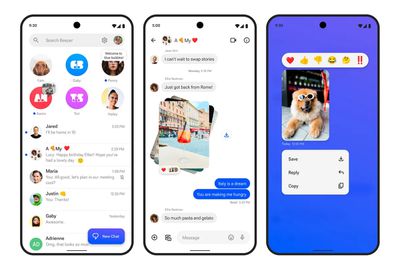Apple appears to have closed the loophole that Beeper Mini used to bring iMessage to Android, putting a stop to blue bubbles from Android devices. Beeper Mini quit working earlier today, with users receiving "failed to lookup on server: lookup request timed out" error messages.

Beeper said on Twitter that it is investigating the issue, but Beeper CEO Eric Migicovsky told TechCrunch that "all data" suggests that Apple has in fact found a way to stop Beeper Mini from working.
Introduced on Tuesday, Beeper Mini used reverse engineered iMessage protocols and encryption, taking advantage of Apple's own iMessage servers to allow Android users to send blue bubble iMessages to iPhone users. The app supported all iMessage functionality, including read receipts, typing indicators, reactions, and more.
Beeper Mini did not require an Apple ID, a departure from other, less secure iMessage on Android apps like Sunbird. The way Beeper Mini functioned was explained in-depth in a blog post, giving Apple insight into how it worked. Beeper Mini was using reverse engineering from security researcher jjtech, who also outlined his methodology and shared a proof-of-concept iMessage implementation on Github.
The app communicated directly with Apple's iMessage servers, and registered the phone numbers of Beeper users as iMessage users to allow for blue bubble access. After Beeper Mini's launch, there was immediate speculation that Apple would shut it down, but it was not clear if Apple would be able to do so given the way that it mimicked actual iMessage users.
Apple appears to have found a way, so this could be the end of Beeper Mini. Migicovsky told TechCrunch that the company will "evaluate options" to figure out what it means for the future of the app.





















